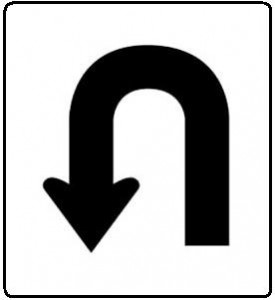Viki will be presenting at the WRC-NAPGCM Conference on 10/16/10 from 10-11:15am PST in Costa Mesa, CA
October 12, 2010 by Viki Kind
Filed under Uncategorized
Viki will be presenting at the WRC-NAPGCM 20th Annual Conference on 10/16/10 from 10-11:15am PST at The Westin South Coast Plaza in Costa Mesa, CA.
The 20th Annual WRC-NAPGCM (Western Region Geriatric Care Management) “Professionalism & Excellence: Navigating the Course” Conference will be held October 14-17, 2010 in Costa Mesa, CA. In addition to great networking, many opportunities to visit with exhibitors and dynamic general sessions, they will be offering a total of 15 incredible breakout sessions with clinical, business and legal/ethical sessions offered at each time.
A Geriatric Care Manager is a health and human services professional, such as a gerontologist, nurse, social worker, or counselor, with a specialized body of knowledge and experience related to aging and elder care issues.
A Professional Geriatric Care Manager (PGCM) is a member of the National GCM Association and has committed to adhering to the GCM Pledge of Ethics and Standards of Practice. The PGCM assists older adults and persons with disabilities in attaining their maximum functional potential. The PGCM strives to respect the autonomy of the individual and delivers care coordination and support services with sensitivity to preserve the dignity and respect of each individual. In addition, the PGCM is an experienced guide and resource for families of older adults and others with chronic needs.
Professional Geriatric Care Managers can offer:
Evaluations to identify problems, eligibility for assistance and need for services.
Personalized services specifically to meet the client’s wants and needs, including information referral and placement in facilities. Customized care plans are designed to institute the appropriate services.
Counseling and support to seniors and their families.
Liaison assistance for families at a distance.
Accessibility since many GCM members are available after hours and on weekends.
Continuity of care management to reduce miscommunication, time, stress, and costs to clients.
Monitor the quality of services being delivered by service providers such as the health care system.
Efficiency and flexibility because GCM services are streamlined and client-centered, not complicated by bureaucratic red tape.
Cost control. GCM members strive to reduce inappropriate institutional care and overuse of services. They match the service to the client’s needs and help contain costs. Ongoing monitoring can prevent costly crises and unnecessary hospitalizations.
Quality control. GCM has adopted standards for practice for all its members. In addition, all full members are reviewed for educational and experience requirements prior to acceptance into the Association.
Review of financial, legal, or medical issues and offer referrals to geriatric specialists to avoid future problems and conserve assets.
Have a kind and respectful day.
When you are going the wrong way, turn around.
August 2, 2010 by Viki Kind
Filed under Featured, For Patients & Families

When we are making the decisions for those in our care, it is important to make sure that the decision is still working. You may find that you made the best medical decision you could and then the plan didn’t work. When this happens, it is important to reconsider the treatment plan. Otherwise, you’re driving down the wrong road: You can keep driving and driving, but you will never get to where you are going. You need to stop, ask for new directions and then start down a new path.
You may also need to modify your expectations when things don’t work. Sometimes we are so desperate for the plan to work that we can’t bear to see the truth when the plan fails. You are not helping your loved one by continuing treatments that don’t work. You are only subjecting the patient to needless side effects and increased suffering. One thing that doctors may want to do is to try a time-limited trial of a proposed treatment option. “Let’s try it for a few days or for a little while and see how it goes.” This is a really great option. After the set time expires, you can check to see if the decision is working. If it is not working, go back through the decision making process and make a better decision based on the new information about the patient’s changing condition. Don’t be stubborn and keep driving your loved one in the wrong direction. Take this as an opportunity to turn around and get it right.
Have a kind and respectful day.
Congratulations Winners!!!
July 21, 2010 by Viki Kind
Filed under Ethics In Action

Congratulations Winners!!!
Terri Murray
Mitch Feigenberg
Susan Hughes
Laurie Brown
Patricia Raymond
(I will be contacting you for your shipping address.)
Thank you to all the people who wrote and shared your stories with me. You are exactly why I wrote this book. So many people are struggling having to make these tough decisions. My heart is with you.
If you would like to order The Caregiver’s Path to Compassionate Decision Making, the book is available online and at your local bookstore. You can also ask your local library to carry it. (It will take a while for it to get onto the library’s shelf, so if you need it right away, then you should order it for yourself.)
http://www.amazon.com/Caregivers-Path-Compassionate-Decision-Making/dp/1608320413
Have a kind and respectful day.


